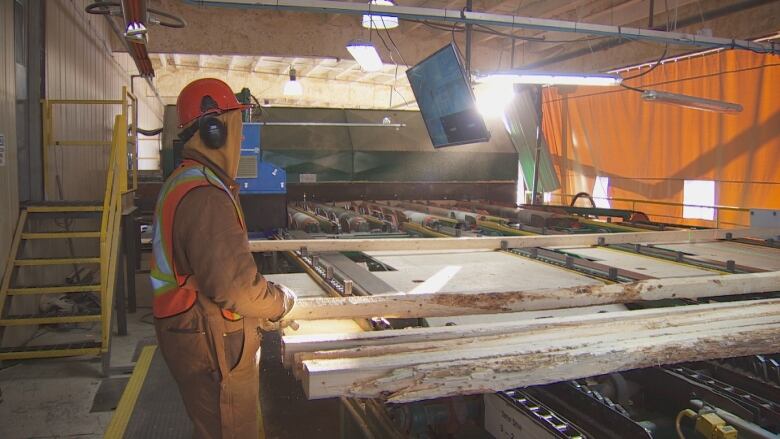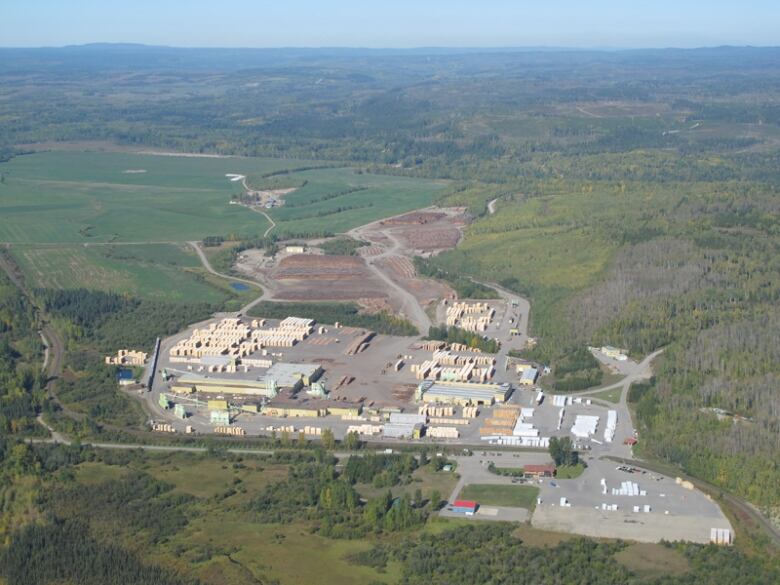Family-owned mills prepare for hefty softwood lumber bills
Retroactive duties from U.S. government 'a kick in the teeth' for small operators

Small forestry companies are bracing for a big bill as the United States prepares to charge them retroactive duties on softwood lumber exports.
"That's all I've been doing all day is talking to people about what this might mean," said Glen Sawkins, sales manager at Dunkley Lumber which employs roughly 250 people at itsmill south of Prince George.
"That's a pretty big chunk of money that nobody was expecting or wanting to put up."
As part of its effort to counter what it views as unfair subsidies on Canadian lumber, the U.S. Commerce Department is imposing duties on Canadian lumber imports.
While the four largest exportersCanfor, Resolute, Tolko and West Fraserwill not have to pay retroactive duties, smaller companies like the family-owned Dunkley will be billed retroactively for the last 90days.
Payment will be expected upon receipt.
"It's a kick in the teeth," said Bill Kordyban of Carrier Lumber, which has one mill in Prince George and another in Prince Albert, Sask.

"It puts the smaller guys atquite a competitive disadvantage."
Susan Yurkovich, president of the B.C. Lumber Trade Council (BCLTC), said the retroactive duties are an "unprecedented departure" and "entirely arbitrary."
She also said the BCLTC is working with the provincial and federal governments to find a solutionand isengaging in litigation to support itscase.
Not all small operations in B.C. will be affected by the duties.
Northeast of Prince George, the McLeod Lake Indian band-owned Duz Cho sawmillfocuses its exportson China and Saudi Arabia.
The move is part ofan effort to lessen the region's dependence on the United States in the wake of previous trade disputes.

Chief operating officer Mike Richard said he doesn't expect an immediate impactbut worries the latest round of duties could havea trickle-down effect, as other companies pursue the same strategy.
"The risk is if it drives a lot of North American production out into export markets,it could impact our markets," he explained.
At Dunkley, Sawkins said it's still to early to know what the exact impact will be but he is worried not everyone will be able to weather the storm.
"There's probably small companies that may be on the edge that may not be doing all that well financially who all of sudden look at this and say 'holy smokes, I don't have enough money for this,'" he said.
"It doesn't feel very good. You don't ever want to change people's employment."
For his part, Kordybansaid he's committed to doing as much as he can to keep his employees working.
"We've been in Prince George since 1951," he said.
"I'm certainly not prepared to throw the towel in anytime soon. If we're going to go down, we're going to go down fighting."












_(720p).jpg)


 OFFICIAL HD MUSIC VIDEO.jpg)
.jpg)



























































































